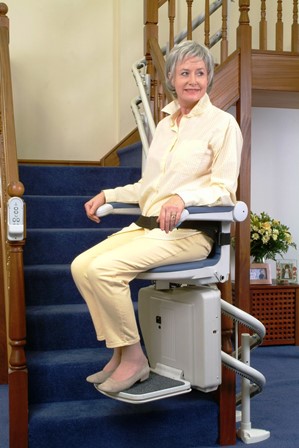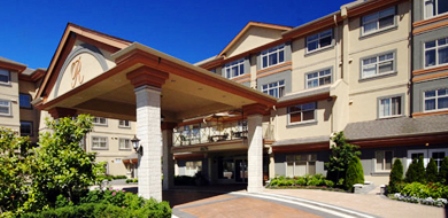Welcome to the Mitten Real Estate Team blog. In today's article we are going to be talking about some of the things seniors should consider when deciding on thier housing options.
During our many years of experience we have helped many seniors choose which housing options is best for them based on thier current and anticipated needs:
First and foremost let me start by saying this is all about you and your family.
Our goal is to do our best to our clients and in some cases their family members move into this next phase of life with as little effort and in a way that will make it as rewarding, enjoyable and safe as possible without infringing on the freedom they are used to.
1. The decision to move as we begin to think about sizing down and moving into the gold years of our lives is often a process – sometimes over a number of months or years. Once the decision is made there are a number of factors that one must consider in the planning.
A. What is value of your existing property?
B Assessment of requirements and associated costs:
i. Housing
ii. Care
iii. Income
iv. Estate Planning
C. Timing of each phase.
2. What are housing options?
A. Current Home

i. Does the layout of your current home lend itself to you being able to remain and age in place safely and in a way that is as rewarding as possible.
ii. If your home does allow you to age in place is home care an option and what sort of remediation would be required to ensure you being able to remain safely – ramps, grab bars, stair lifts etc.

iii. If your current home does not lend itself to aging in place then a move should be considered while you are still healthy and able to enjoy the ability to move on your timing prior to when one is forced to make that move.
B. Apartment, townhouse or house

There are a number of options for one to look when making this move:
i. Some of our clients move to a home that does lend itself to aging in place such as a rancher or we have even had some of our clients buy homes with legal suites and either use the suite to supplement income or for housing for a caregiver and in some cases our clients have moved into the suite and rented out the main house leaving them in a situation where they are in accommodation similar to what they would be if they moved to an independent living complex but also have additional income to assist with the increased cost of care as ones needs in that regard increase.
ii. Some of our clients decide to further reduce the maintenance requirements of a home by moving to an apartment or townhome. There are many great options for adult oriented living in a number of great 45+ or 55+ complexes in the Fraser Valley area.
iii. If one is considering a move to a home, townhome or apartment give consideration to the fact that at some point in time it is likely that an additional move may be necessary unless in home care is an option as it becomes necessary.
C. Independent Living Community – with or without care
Independent living facilities offer apartments, along with meals or meal plans, laundry, housekeeping, concierge services, handyman services and usually the option for care on a pay for use basis. Most are based on a rental for the apartment, however, some also offer the opportunity for ownership of the apartment

i. Rental
a. Advantages:
-With independent housing your housing is integrated with a number of other factors such as: food, staff, entertainment, care and more. The benefit of renting, is that you will have the opportunity of determining whether the overall experience is to your satisfaction prior to your final decision – do you like the food, the staff etc. With this in mind I would highly recommend renting at least for a while before making your final decision.
-The benefit to renting on an ongoing basis is simply that although the housing is what it is, staff can change and along with the changes so can the care and the food. Renting allows you the flexibility to switch to other facilities should you decide you are no longer happy.
-Bear in mind that it has been the experience of many of our clients that have gone through this it takes at least six months to get used to a facility. Also bear in mind that no facility is perfect and often if you are not happy with something about the facility you are in that there are often benefits to working with staff to correct it rather than simply changing.
b. Disadvantages
-The disadvantage to ongoing rent is that typically rents increase overtime and therefore your housing costs can go up as does your need for additional income.
-The other thing to consider with renting on an ongoing basis is that the income necessary to pay the rent may be taxable depending on your tax situation whereas with ownership providing you purchase without a mortgage you will need less income to sustain your living expenses and therefore your tax burden may be lower. When we were exploring this for our parents giving consideration to all of the factors they felt it was best for them to rent on an ongoing basis and we found our financial advisor to be very helpful in working together with our accountants to structure a solution which mitigated the taxes payable on the income necessary to pay for their living expenses.
ii. Ownership
a. Advantages:
-Ownership allows you to fix your housing costs. The cost of food and care may still go up but the costs of the housing portion of your requirements is fixed and again if you own clear title the need for additional income and the tax burdens associated with it are a non issue.
-The other benefit for ownership is that at the end of when you will be staying in this location you or your families owns the property and are able to sell the property at whatever the current market value is at that time. Your financial advisor can help you determine whether there are greater benefits in investing in the housing or other investments that may yield a greater return if this is the only decision in determining whether to buy or rent.
b. Disadvantages
-The disadvantage to ownership is the lack of flexibility. This disadvantage goes both to the choice of the facility you will be moving to originally as well as to the ease of moving should you not be happy with some facet of your living situation. Not all independent living communities offer the option to purchase and therefore if one desires the option to purchase it does limit the independent living communities that one can consider.
D. Care facility – Normally provide a room as well as the food and care on an all inclusive basis. This decision is normally predicated on the care requirements of the
individual.
3. Sizing Down: This process usually involves sizing down to smaller accommodations.
A. Can you do it yourself?
B. Do you require help?
i. Family
ii Church or support community
iii. Professional organizers
4. Choosing Where To Relocate
Determining where to relocate often involves giving consideration to:
A. Proximity to family or friends
B. Proximity to support community
C. Proximity to doctor or other professionals
5. What Are Your Goals
A. The goal is usually to move into a housing situation which allows one to age safely and in many cases people also want to free up equity from their home to provide for some of the increased care needs with the return that their invested equity can provide or as in the case of people moving into properties with legal suites to utilize the suite instead of investing their equity to increase their income to provide for their growing care needs.
B. Often there is a desire to move towards a more maintenance free life with options for future care if not immediate care and that desire to simplify and be more flexible to deal with unpredictable events in one’s life or health often prompts people to move into assisted living and to free their equity up to invest for their care needs.
6. Cooperation Is Very Important:
This transition is generally best accomplished by a cooperative effort involving family and professionals such as lawyer, investment counselor/bank, doctors, accountant, realtor, social worker, care facilities and providers and support workers to determine the housing, care and income requirements, formulate a plan giving consideration to the different options and needs, and implement it in a timely manner.






Comments:
Post Your Comment: